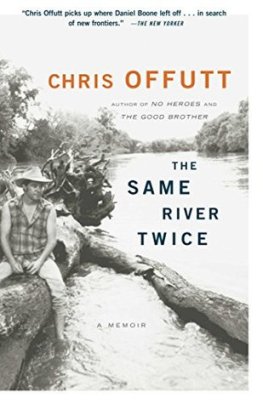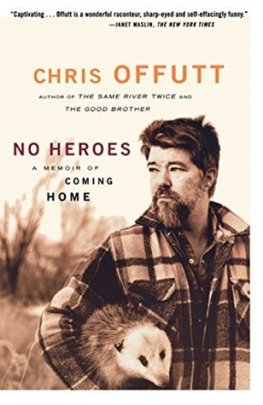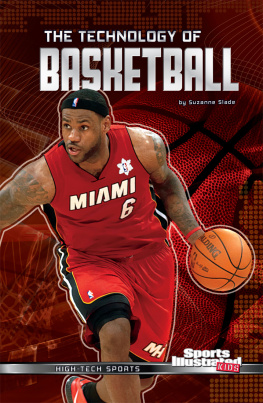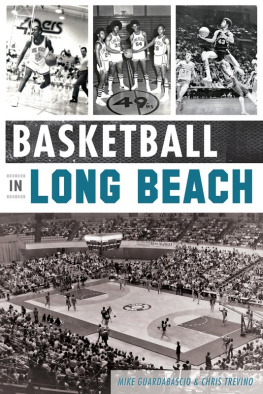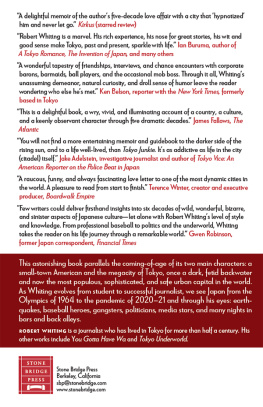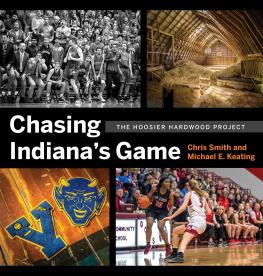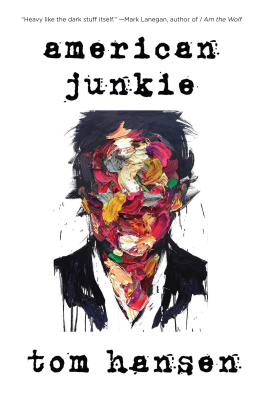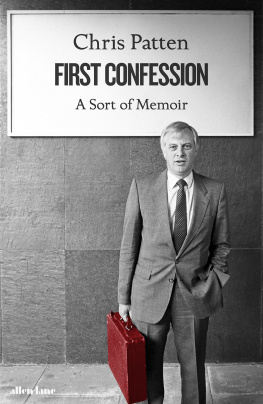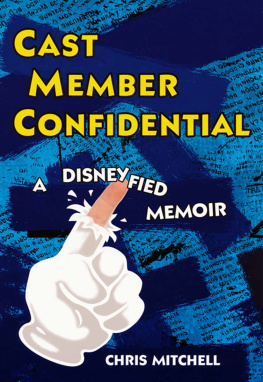Chris Herren - Basketball Junkie: A Memoir
Here you can read online Chris Herren - Basketball Junkie: A Memoir full text of the book (entire story) in english for free. Download pdf and epub, get meaning, cover and reviews about this ebook. year: 2012, publisher: St. Martin’s Griffin, genre: Non-fiction / History. Description of the work, (preface) as well as reviews are available. Best literature library LitArk.com created for fans of good reading and offers a wide selection of genres:
Romance novel
Science fiction
Adventure
Detective
Science
History
Home and family
Prose
Art
Politics
Computer
Non-fiction
Religion
Business
Children
Humor
Choose a favorite category and find really read worthwhile books. Enjoy immersion in the world of imagination, feel the emotions of the characters or learn something new for yourself, make an fascinating discovery.

- Book:Basketball Junkie: A Memoir
- Author:
- Publisher:St. Martin’s Griffin
- Genre:
- Year:2012
- Rating:5 / 5
- Favourites:Add to favourites
- Your mark:
- 100
- 1
- 2
- 3
- 4
- 5
Basketball Junkie: A Memoir: summary, description and annotation
We offer to read an annotation, description, summary or preface (depends on what the author of the book "Basketball Junkie: A Memoir" wrote himself). If you haven't found the necessary information about the book — write in the comments, we will try to find it.
Basketball Junkie: A Memoir — read online for free the complete book (whole text) full work
Below is the text of the book, divided by pages. System saving the place of the last page read, allows you to conveniently read the book "Basketball Junkie: A Memoir" online for free, without having to search again every time where you left off. Put a bookmark, and you can go to the page where you finished reading at any time.
Font size:
Interval:
Bookmark:

To Heather, who never gave up, and in memory of my mother, Cynthia Herren
ACKNOWLEDGMENTS
I would like to thank the following, all of whom were instrumental in their own way to my recovery: Ray Tamasi, the director of Gosnold; Ray Lenihan, Andrew Hoffman, and all the people at Daytop; Chris and Liz Mullin; Kevin Mikolazyk and Joleena Tate; Skip Karam, Bobby Karam, and Jimmy Karam; Miller House; John Welch; Mary and Steve Parker; Chuckie Moniz; and Ken Gray.
I also would like to thank some of the people who took a chance on me when I was raw, vulnerable, and starting my business. The Fiolas. The McDonalds. Pat and Joe Sharkey. The Chrabascz family. The Bode family. The Holes. The Murphys. The Wells. Sammy Martin. And the Coffee House in Portsmouth, where much of the book was done.
And a public thank-you to my childhood friend Jeff Caron, and most of all, to my father, Al Herren, and brother Michael, who never stopped believing in me even in my darkest times.
Chris Herren
George Witte, who was my editor on Fall River Dreams, believed in this project from the beginning, always understood it, and made everything easy. No writer can ask for more.
David Vigliano, my agent for over two decades now, also saw this right from the beginning and his great instincts have never steered me wrong. David Peak of Vigliano Associates shepherded the book through the process, and has my enduring thanks.
And once again, Liz Abbott was always there for me, with her judgment, faith, and constant support. This would be a lesser book without her.
Bill Reynolds
CONTENTS
PROLOGUE
In the autumn of 1992 I went to Fall River, Massachusetts, a tired old mill town in the southeastern part of the state, to write a book on the citys Durfee High School basketball team.
The idea was to follow the team through a season, to examine what the team meant to the city and to the kids who played on it, to look at a high school basketball team from the inside out. I chose Fall River because Durfee had a rich basketball history; it was one of the few places in the Northeast where both the game and the high school team were deeply imbedded in the citys fabric, a place where the high school team still mattered in ways it didnt in most other towns.
My plan had been to focus on the coach, a local legend named Thomas Skippy Karam, who had once played at Durfee, who had coached there for over thirty years, and whose fate it was to be ending his great career in an America so different from the one in which he had come of age. But it was quickly apparent that the story was more complicated. At the center of it was a psychic battle being played out every day between Karam and Durfees junior star, Chris Herren, a battle that was both generational and cultural.
With his teen-idol looks and his swept-back hair, walking through the corridors of Durfee as if he were the leading man in his own movie, Chris Herren was the embodiment of the high school hero, and he was already being recruited by numerous colleges throughout the Northeast. He was young and strong, destined to play in the biggest arenas in the country. Though only six foot two, Herren had an explosive first step and seemed able to get to the rim almost at will. He had swagger, he had style, he signed autographs after games, and he seemed to have the word star all but stamped on his forehead. He also seemed to define hip-hop, then the new teen rage, with his nervous energy and naked emotion, and with his street-cred, the way he would bump shoulders with one person while on the move to the next. He was always on the move.
High school basketball was the lifeblood of the city, had been since 1947, when Durfee High School won the Eastern Massachusetts title and a caravan of cars made the drive to the Boston Garden, communicants to a sacred shrine. Local legend claims that it was the first time the Garden had ever sold out for basketball, and when the Durfee band played the schools anthem the faithful stood up all over the Garden and sang along, many with tears in their eyes. Back home in Fall River others huddled next to their radios, living and dying through the static. In many ways, high school basketball was almost all Fall River had back then.
Once, there had been money in Fall River, courtesy of the mill families that ruled the city like benevolent despots. At the end of the nineteenth century the Fall River Line ran opulent steamships daily from Fall River to New York City, ships described in newspapers as floating palaces. In Fall River there was electricity, and telephones, and streetcarsall the amenities of a thriving city. A public library, a spacious boys club, an armory, large public parks, and a showcase high schoolmodeled after the city hall in Paris and considered at the time one of the finest high schools in the countrywere all built with private gifts.
At the turn of the century Fall River was one of the most cosmopolitan cities in the United States, with the highest percentage of foreign-born citizens. It had evolved into a group of ethnic neighborhoods that operated almost like individual duchies, with their own churches and social clubs. The Flint. Corky Row. Below the Hill. The South End. The Highlands.
But by World War II the seeds of the citys decline were being sown. Much of the textile industry was starting to shift to the South, and the Depression brought grim realities to Fall River. Few American cities were hit harder. By the start of World War II 80 percent of the mills that had operated in 1916 were out of business, leaving a plundered industrial ghost town, abandoned buildings, high unemployment, and the feeling that the good times were all gone.
Except for high school basketball.
There developed a mystique about Durfee basketball, a tradition that only grew as they won numerous state championships through the decades. It was there for everyone to see, on the walls of the field house. It was there in the dusty trophy case in the lobby, in the game program that started off with a history of Durfee basketball. It was there in the Greek chorus of older men, at the games year after year, forever arguing who the best players were in Durfee history, the best teams, as if 1947 were no different from 1993. It was there in the fact that the games had been broadcast on local radio for fifty years. Most of all, it was there in the citys memory, the palpable sense that the past and the present were on the same scorecard, the fact that there had been only two coaches in almost half a century, the fact that the game was passed down through the generations like an old family heirloom.
And no one embodied that tradition more than Chris Herren.
His grandfather had been a huge star at Durfee. His father had been a star. His mother had been a cheerleader. Three uncles had played for Durfee, one on a state championship team. His brother, Michael, had been the schools all-time scoring leader until Chris broke that record in his last home game. No one ever had better basketball bloodlines in Fall River.
Could you make this up?
No, you couldnt.
In so many ways, Chris Herren was as Fall River as the old mills throughout the city, those monuments to another time: tough, proud, intense, never backing down from anyone. More important, he was everyones ticket to ride, as if everyone had a stake in his future, as if his success were their success, too. In the summer before his senior year in high school, the local newpaper ran a three-part series on The Courtship of Chris Herren. His announcement of his college choice was made at a press conference covered by TV stations in Boston and in nearby Providence, Rhode Island.
Despite the mystique, the little secret about Durfee basketball was that so few of its stars ever found a second act; they were comets that quickly disappeared. Hadnt that always been the unofficial motto? Born in Fall River, die in Fall River. Wasnt that the great unwritten story, all the legendary high school careers that never had been able to transcend Fall River?
Next pageFont size:
Interval:
Bookmark:
Similar books «Basketball Junkie: A Memoir»
Look at similar books to Basketball Junkie: A Memoir. We have selected literature similar in name and meaning in the hope of providing readers with more options to find new, interesting, not yet read works.
Discussion, reviews of the book Basketball Junkie: A Memoir and just readers' own opinions. Leave your comments, write what you think about the work, its meaning or the main characters. Specify what exactly you liked and what you didn't like, and why you think so.

